
Choosing the right sewing thread is crucial to ensure the success of your sewing projects. With various types, weights, and fibers available, it’s important to understand the characteristics of each thread type and select the one that suits your needs. Here are some common sewing threads to consider:
Cotton Thread
Cotton thread is a popular choice for general sewing projects. It’s versatile and works well with natural fibers such as cotton, linen, and rayon. Cotton thread comes in different weights, ranging from fine to heavy. Opt for a finer thread for lightweight fabrics and a heavier thread for stronger seams on heavier fabrics.
Polyester Thread
Polyester thread is known for its strength and durability. It’s an excellent choice for sewing synthetic fabrics, such as polyester, nylon, and spandex. Polyester thread has a bit of stretch, making it suitable for stretch fabrics or seams that require some give. Additionally, it has excellent colorfastness, meaning it won’t fade or bleed when exposed to sunlight or washing.
Nylon Thread
Nylon thread is incredibly strong and resilient, making it suitable for heavy-duty sewing projects like upholstery and leatherwork. It has excellent abrasion resistance and can withstand high-tension sewing, ensuring long-lasting and sturdy seams. Nylon thread is available in various thicknesses and colors, giving you options for different applications.
Silk Thread
Silk thread is the go-to choice for delicate fabrics like silk, satin, and chiffon. It’s incredibly fine and lightweight, allowing for nearly invisible stitches. Silk thread has a natural luster that adds a luxurious touch to your garments. Keep in mind that silk thread is not as strong as cotton or polyester, so it’s best suited for lightweight and non-stressed seams.
Specialized Threads
In addition to the aforementioned threads, there are specialized threads available for specific purposes. Metallic threads are perfect for decorative embroidery and adding shimmering accents to your projects. Invisible threads, made from nylon or polyester, are ideal for hems, appliques, or any sewing where you don’t want the thread to be visible.
Conclusion
Choosing the right sewing thread is essential for achieving professional and long-lasting results. Consider the type of fabric you’re working with, the desired strength of the seam, and the specific characteristics of each thread type. Experimenting with different threads will help you find the ideal match for your sewing projects. Remember, the right thread can make all the difference!
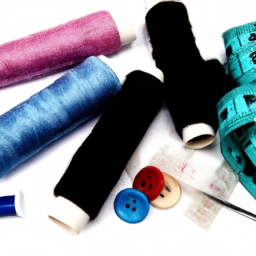
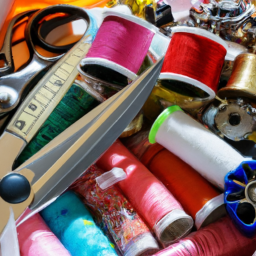
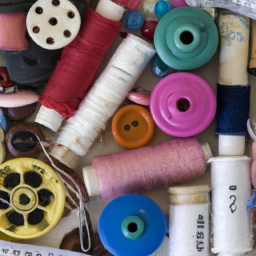
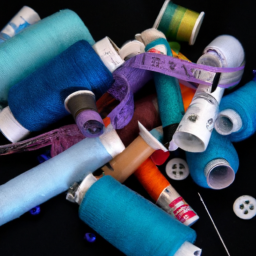
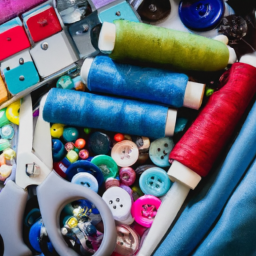
Great article! So helpful! #threading
#ThreadingSuccess – No matter what kind of project you’re tackling, it’s important to consider which type of thread is best suited to get the perfect finish – glad this article provides some quality tips!
This is so helpful. Thanks for the info! #sewingproject
Thanks for the useful information! #sewing